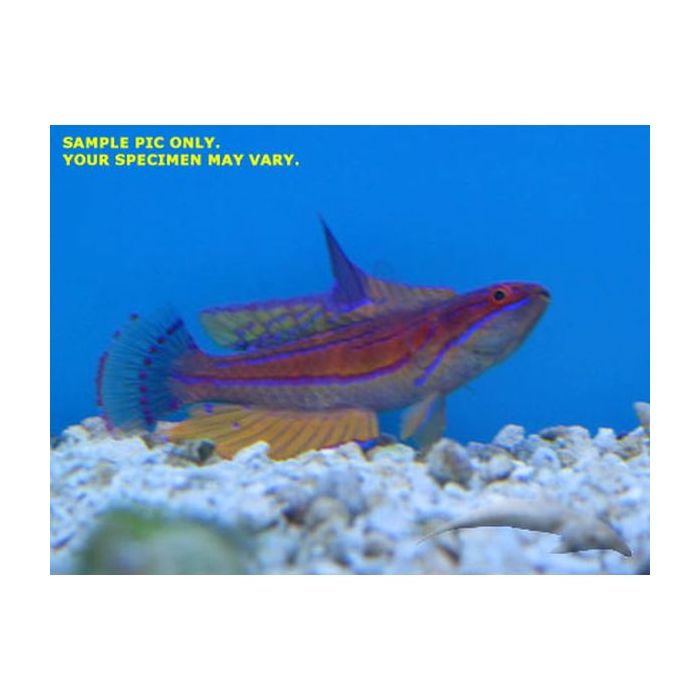Carpenter's Flasher Wrasse (Asia Pacific)
Wrasses are prone to jumping from the aquarium when startled or excited so we recommend a secure lid. They feel most secure when there is plenty of live rock to hide in, as well as open space for swimming. Most species may be kept in pairs or harems as long as they are added together or females first. They do not appreciate living with other species of wrasse, so any aquarium with several species must be large enough and the most peaceful species added first.
They should be fed two to three times a day plenty of high quality meaty items, frozen Mysis shrimp, krill, chopped seafood, marine algae and Spirulina.
Flasher wrasses are easy to keep and have active personalities. Their small size means they are safe with most invertebrates except small shrimp. They do not bother corals or anemones. As they are quite dainty we don't recommend keeping them with other types of wrasses or any large or aggressive species else they will be bullied. They may be kept in pairs or harems as long as they are added at the same time or females first. Groups with more than one male, even of different species, may be kept in large aquariums if they are added at the same time.
Females of most species are nearly identical; males may also be difficult to distinguish except when flashing. Hybrid fish are common and carry traits from both species.
Flasher wrasses get their name from the male's behavior of raising his fins and intensifying his coloration far beyond his normal appearance, usually to seduce a female or intimidate rival males or other species. At night time flasher wrasses hide in the rockwork and wrap themselves in a mucus cocoon to hide their scent from predators. This cocoon may be visible in the morning, and will soon dissipate into the water, and a new cocoon created each night.
The striking Carpenter's wrasse is the most commonly available of the flasher wrasses. Males have several extended dorsal fin rays which may be as tall as his body; there are usually two to four of these rays. His tail is yellow and rounded with two vertical rows of dense spots in bright magenta. Similarly colored spots arranged in stripes run from his nose to the base of the tail, one on his anal fin and two on his dorsal fin. His body is a bright tangerine with a white to yellow belly. When flashing his body becomes golden, fins red, and the magenta spots become turquoise. Females have similar colors to the male at rest, mainly tangerine with rounded fins. This species is similar to the McCosker's flasher. It grows up to 3.5 inches and needs an aquarium of at least 30 gallons for a single fish, larger for a group.
















